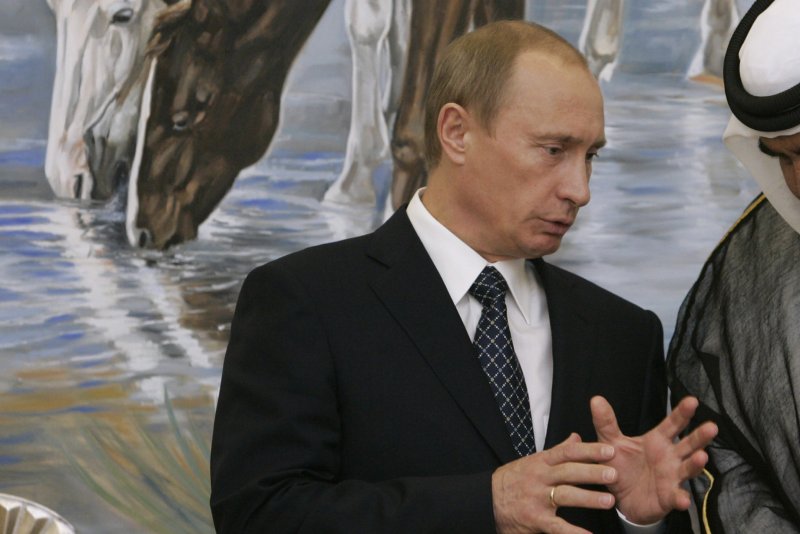The economy under Russian President Vladimir Putin is recovering even as oil prices remain low by historic standards, a development minister said. File photo by Anatoli Zhdanov/UPI |
License Photo
Nov. 22 (UPI) -- Russia's budget deficit is moving in a direction indicative of economic recovery even as oil prices remain low by historic standards, a minister said.
The budget deficit will be around 2 percent of the national gross domestic product, or possibly even less, by the end of the year. Russian Economic Development Minister Maksim Oreshkin said that, despite oil prices falling below $40 per barrel in recent quarters, the economy was on the road to recovery.
"What is being discussed now is the issue of economic growth," he was quoted by Russian news agency Tass as saying.
The Russian Central Bank said inflation is holding steady at it's target rate of around 4 percent, but moved in a range this year between 3.3 percent and 4.4 percent. In her September report, the Central Bank chief said if the Organization of Petroleum Exporting Countries doesn't extend the deal, oil prices could fall to $40 per barrel by the end of the year, which was her forecast for the price point in 2018.
Oreshkin said Wednesday that inflation was around 12 percent two years ago, but was now closer to the target range outlined by the Central Bank.
Earlier this year, Oreshkin said the resiliency of U.S. shale to lower crude oil prices may put a ceiling over the price of oil, which was below $50 per barrel at this time. The price for Brent crude oil was near $63 per barrel early Wednesday, with Urals, the Russian benchmark, close behind at $62.40 per barrel.
Oreshkin in May expressed support for an extension to the effort from OPEC to balance a lopsided market with production cuts.
Russia is the largest non-member state contributor to the agreement. Minutes from a meeting last week with Russian Energy Minister Alexander Novak could indicate reluctance to move for a deeper extension as leaders expressed support for markets "in the current format."
Mikhail Mishustin, the head of the Federal Taxation Service, told Russian President Vladimir Putin this week that the budget has received $240 billion in tax collections over the last 10 months, which was 19.1 percent higher than during the same period one year ago.
Total Russian crude oil production is up 1.8 percent from January. Total crude oil exports are up 5 percent since the beginning of the year.















